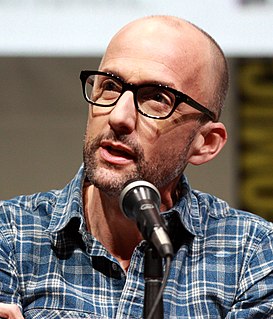A Quote by Rumaan Alam
When you are what we call a 'minority writer,' a writer of color, a writer of any kind of difference, there is some kind of presumption of autobiography in everything you produce. And I find that really maddening, and I resist that.
Quote Topics
Related Quotes
I say "on principle" [regarding 'lesbian writer'] because whenever you get one of your minority labels applied, like "Irish Writer," "Canadian Writer," "Woman Writer," "Lesbian Writer" - any of those categories - you always slightly wince because you're afraid that people will think that means you're only going to write about Canada or Ireland, you know.
As every writer knows... there is something mysterious about the writer's ability, on any given day, to write. When the juices are flowing, or the writer is 'hot', an invisible wall seems to fall away, and the writer moves easily and surely from one kind of reality to another... Every writer has experienced at least moments of this strange, magical state. Reading student fiction one can spot at once where the power turns on and where it turns off, where the writer writes from 'inspiration' or deep, flowing vision, and where he had to struggle along on mere intellect.
Oh, I love labels, as long as they are numerous. I'm an American writer. I'm a Nigerian writer. I'm a Nigerian American writer. I'm an African writer. I'm a Yoruba writer. I'm an African American writer. I'm a writer who's been strongly influenced by European precedents. I'm a writer who feels very close to literary practice in India - which I go to quite often - and to writers over there.
When you find a writer who really is saying something to you, read everything that writer has written and you will get more education and depth of understanding out of that than reading a scrap here and a scrap there and elsewhere. Then go to people who influenced that writer, or those who were related to him, and your world builds together in an organic way that is really marvelous.
I have always hated biography, and more especially, autobiography. If biography, the writer invariably finds it necessary to plaster the subject with praises, flattery and adulation and to invest him with all the Christian graces. If autobiography, the same plan is followed, but the writer apologizes for it.
The writer’s job is to write with rigor, with commitment, to defend what they believe with all the talent they have. I think that’s part of the moral obligation of a writer, which cannot be only purely artistic. I think a writer has some kind of responsibility at least to participate in the civic debate. I think literature is impoverished, if it becomes cut from the main agenda of people, of society, of life.


































